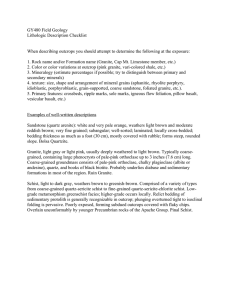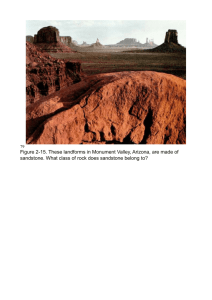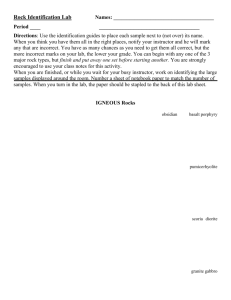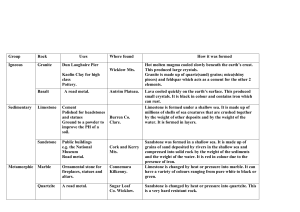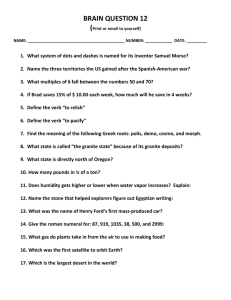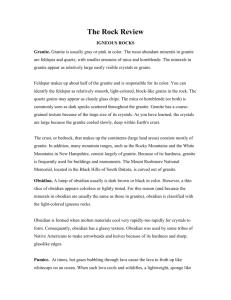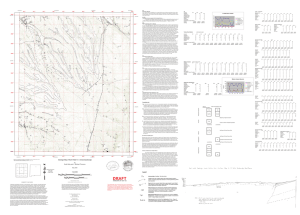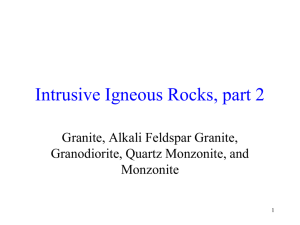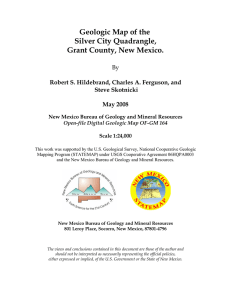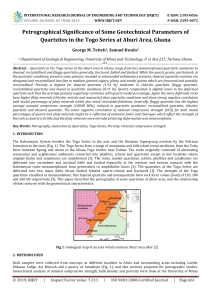KEY – Physical Geology 102 Ordering Geologic Events II and
advertisement
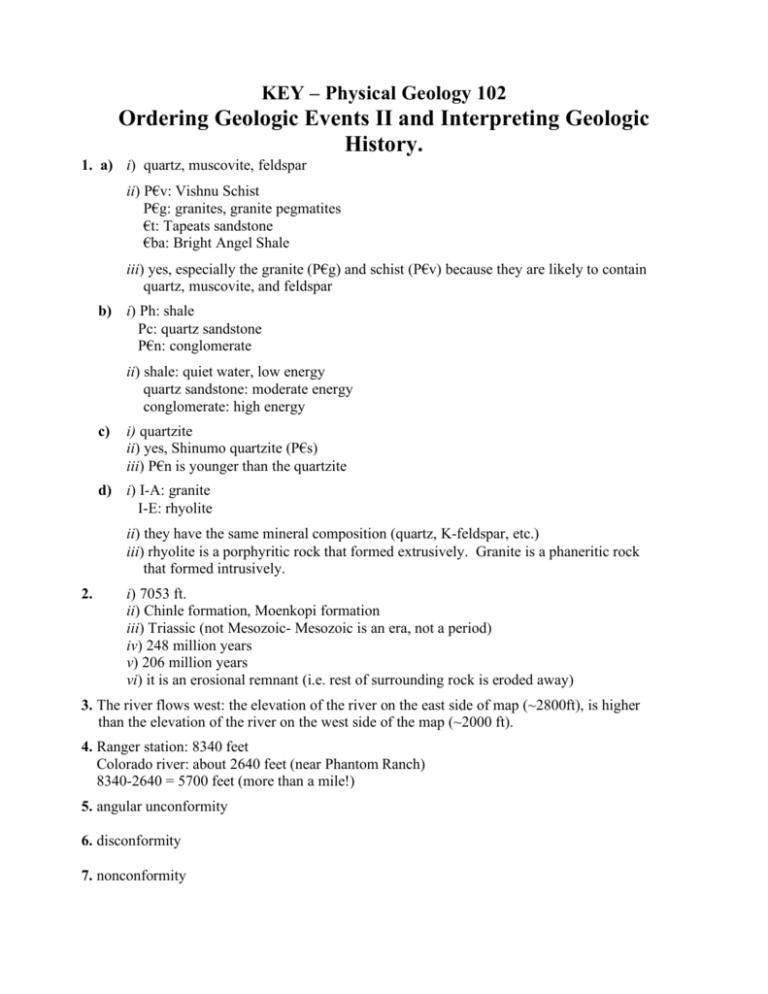
KEY – Physical Geology 102 Ordering Geologic Events II and Interpreting Geologic History. 1. a) i) quartz, muscovite, feldspar ii) P€v: Vishnu Schist P€g: granites, granite pegmatites €t: Tapeats sandstone €ba: Bright Angel Shale iii) yes, especially the granite (P€g) and schist (P€v) because they are likely to contain quartz, muscovite, and feldspar b) i) Ph: shale Pc: quartz sandstone P€n: conglomerate ii) shale: quiet water, low energy quartz sandstone: moderate energy conglomerate: high energy c) i) quartzite ii) yes, Shinumo quartzite (P€s) iii) P€n is younger than the quartzite d) i) I-A: granite I-E: rhyolite ii) they have the same mineral composition (quartz, K-feldspar, etc.) iii) rhyolite is a porphyritic rock that formed extrusively. Granite is a phaneritic rock that formed intrusively. 2. i) 7053 ft. ii) Chinle formation, Moenkopi formation iii) Triassic (not Mesozoic- Mesozoic is an era, not a period) iv) 248 million years v) 206 million years vi) it is an erosional remnant (i.e. rest of surrounding rock is eroded away) 3. The river flows west: the elevation of the river on the east side of map (~2800ft), is higher than the elevation of the river on the west side of the map (~2000 ft). 4. Ranger station: 8340 feet Colorado river: about 2640 feet (near Phantom Ranch) 8340-2640 = 5700 feet (more than a mile!) 5. angular unconformity 6. disconformity 7. nonconformity 8. i) Ph is older ii) law of superposition 9. Permian rocks are older than the faults (you can tell because the faults cut across the Permian rocks) 10. 11. 12. i) p€v is older ii) law of cross-cutting relationships (the granite (an igneous rock) intruded into the schist. Therefore, the schist had to be there 1st in order for the granite to intrude into it.) YOUNGEST erosion Mr Dtb €m faulting (most likely faulting occurred after all sedimentary rocks, €ba but evidence of this has eroded away) €t erosion tilting P€d P€s P€i (sill) P€h P€b erosion OLDEST Pp€g i) 12.5% parent; 87.5% decayed therefore: 3 half lives have elapsed ii) (713 million years) x 3 half lives = 2139 million years old (or 2.1 billion years old) iii) the oldest the Tapeats sandstone could be is 2,139 million years old 13. i) elevation = 3600 feet ii) elevation = 3200 feet ii) 3600-3200= 400 foot change in elevation this change in elevation could be due to tilting of the Redwall Limestone
